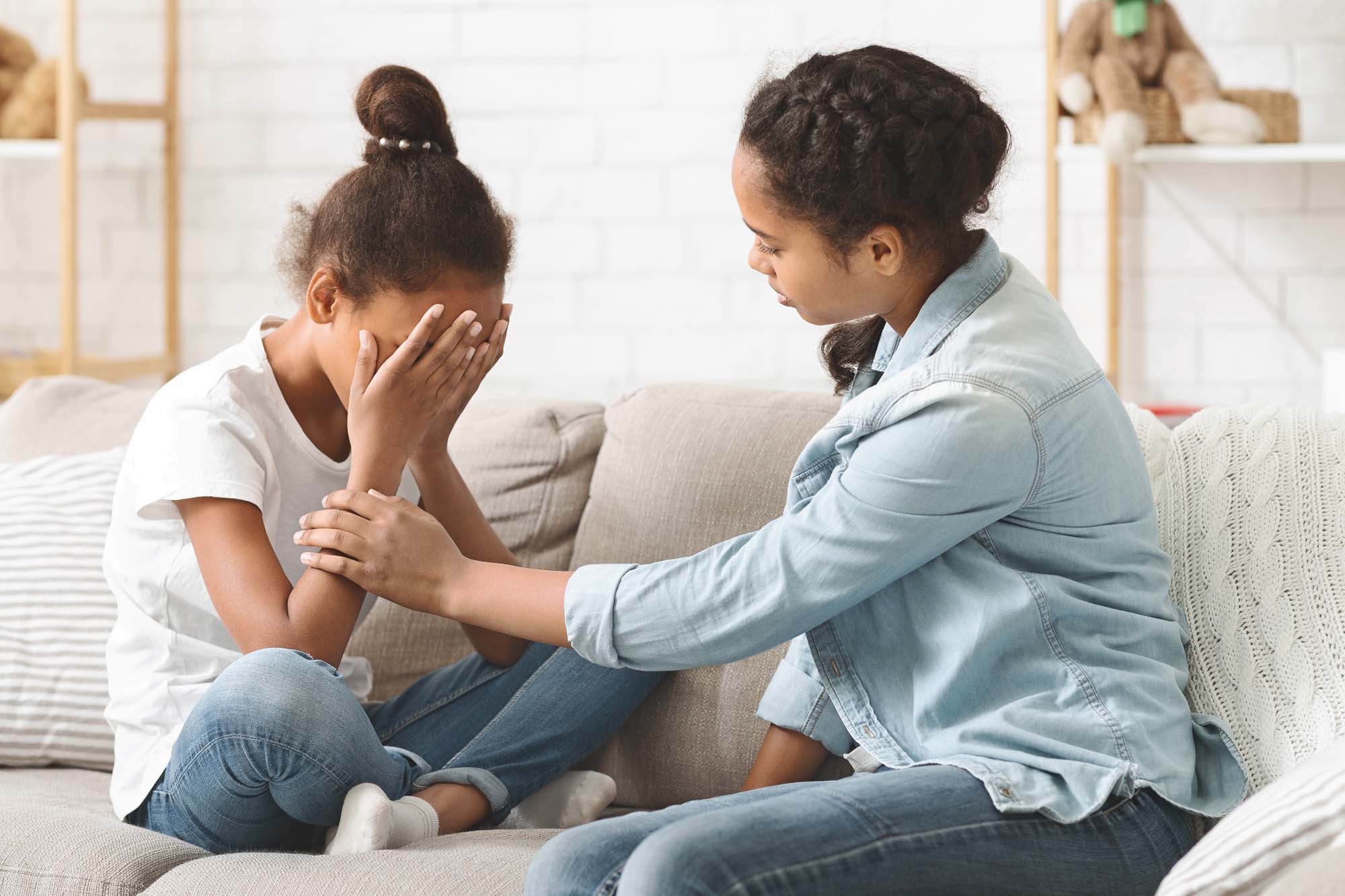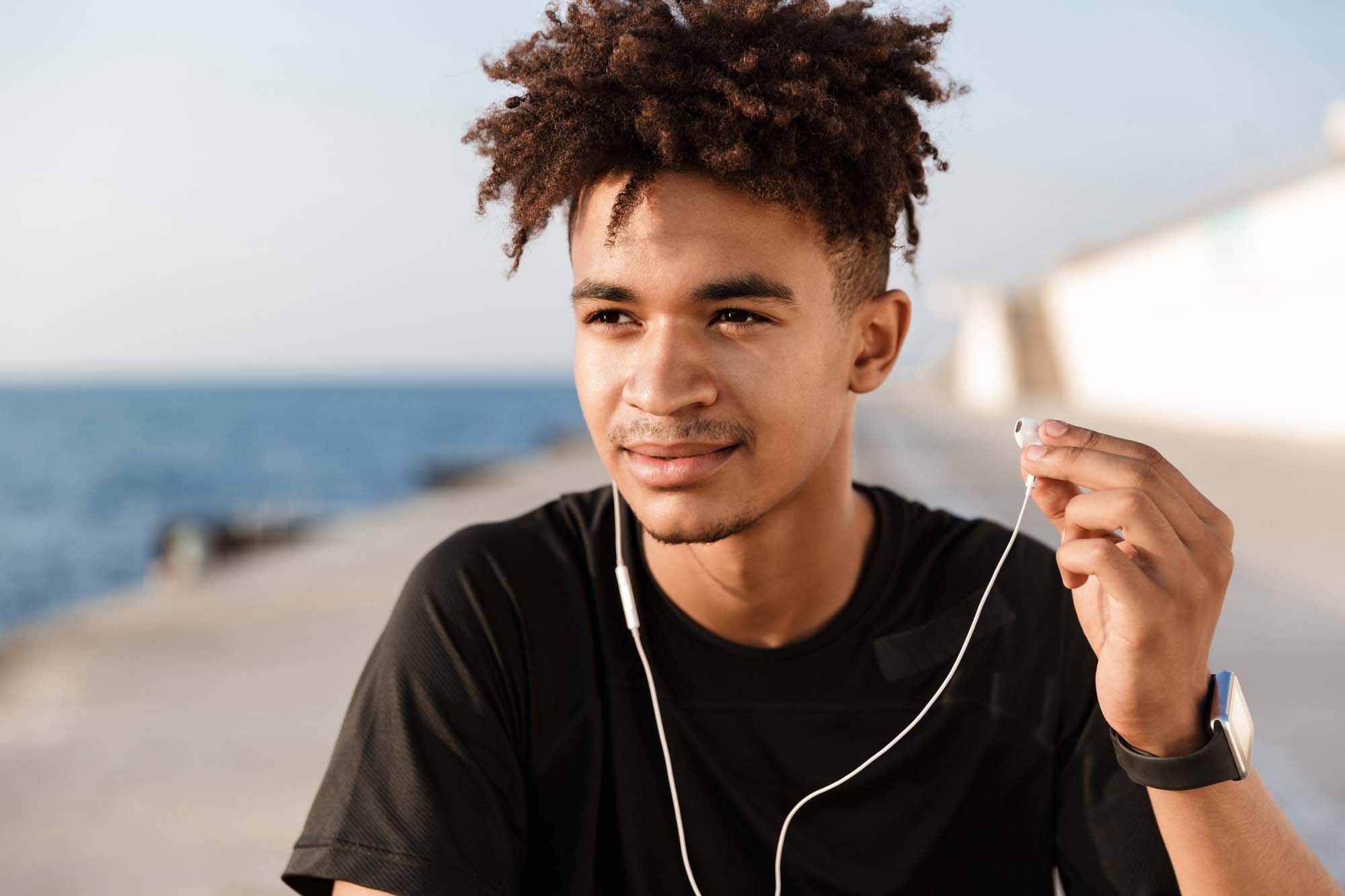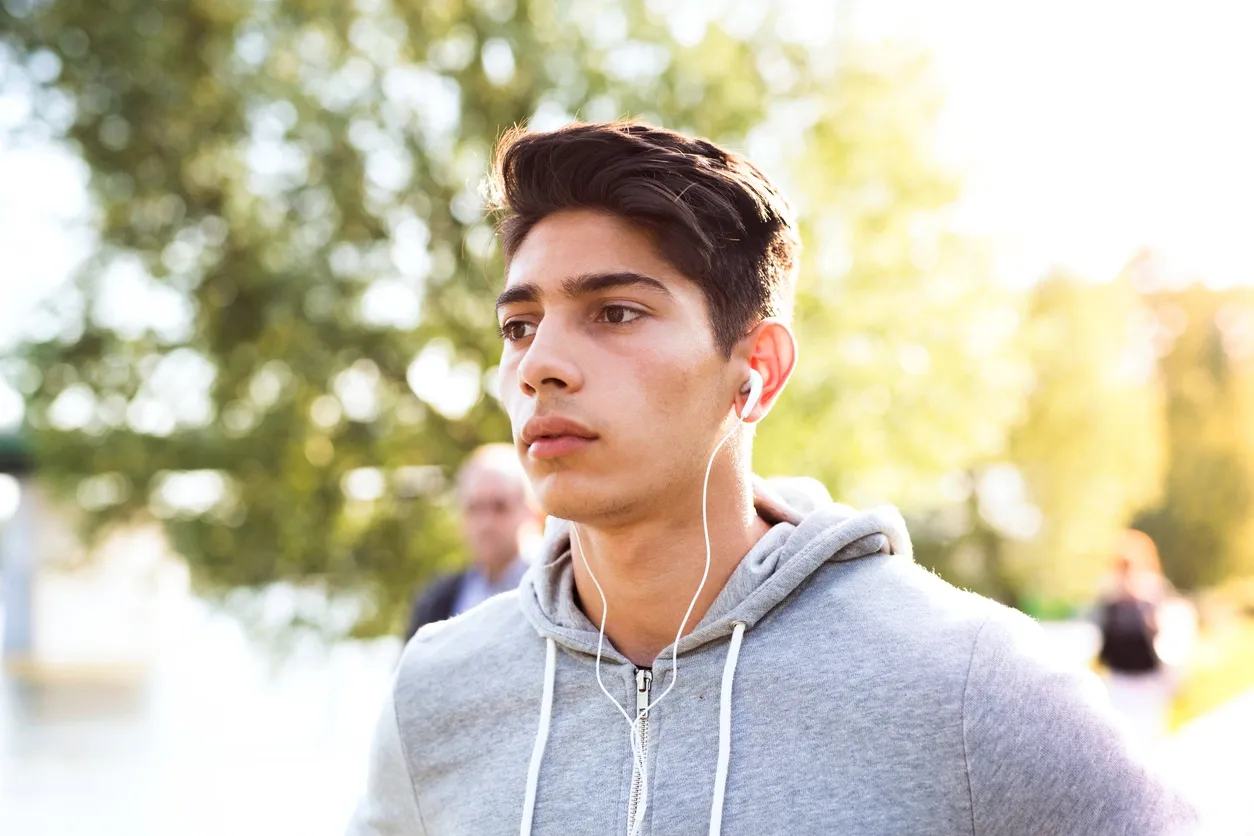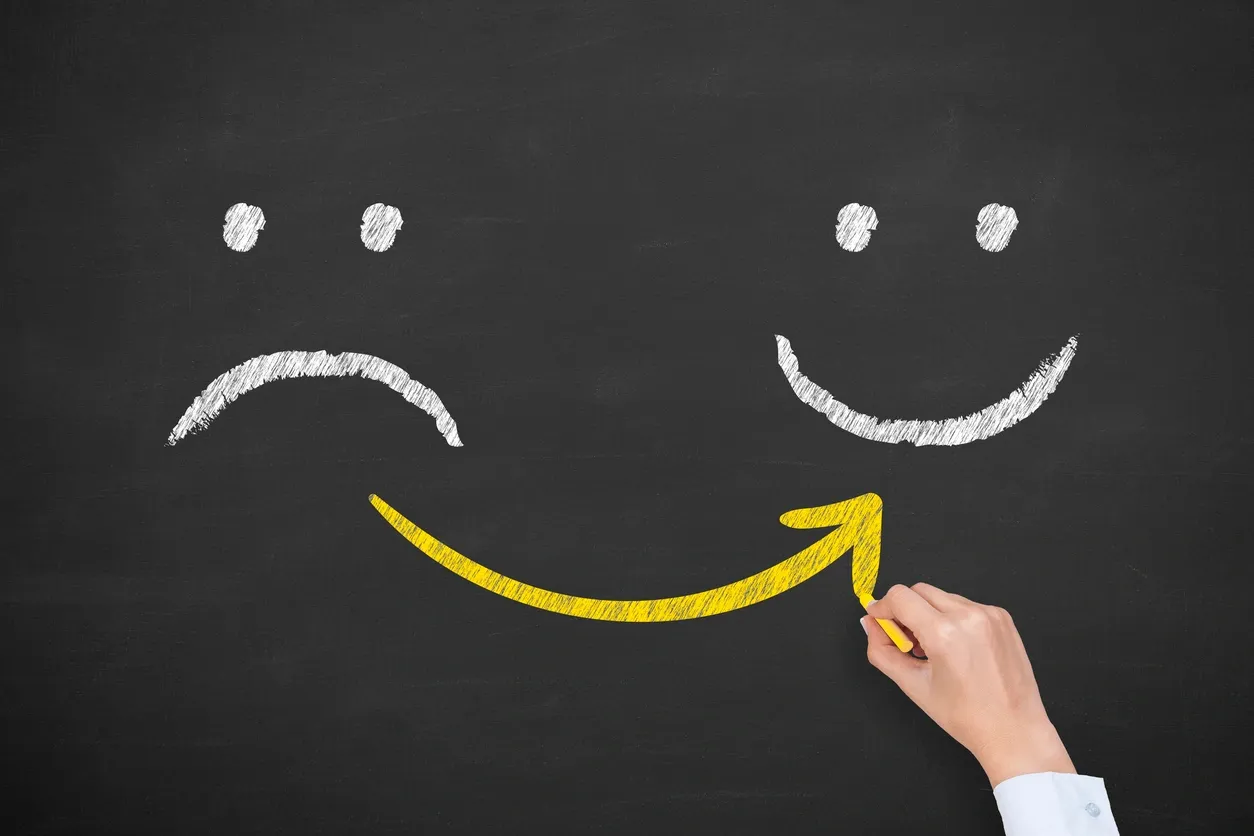Teen Bipolar Disorder
Watching your teen navigate the highs and lows of Bipolar Disorder can be deeply distressing and confusing. At Build Bright Care Group, we understand the emotional toll this condition can take on both teens and their families—and we’re here to offer real help and hope. Located in Los Angeles, California, our residential treatment program provides expert, compassionate care for adolescents struggling with Bipolar Disorder, combining evidence-based therapies, personalized treatment plans, and round-the-clock support in a safe, structured environment.
Find out if your insurance will cover the cost of treatment.
Understanding Teen Bipolar Disorder: A Guide for Parents
Recognizing the Signs and Supporting Your Teen Through Mood Instability
Bipolar Disorder is a complex mental health condition characterized by extreme mood swings that include periods of elevated mood (mania or hypomania) and periods of depression. For teenagers, navigating these intense mood fluctuations can be particularly challenging, impacting their relationships, academic performance, and overall well-being.
Bipolar Disorder in teens is not just a phase; it’s a complex condition that requires understanding and medical intervention. Unlike the typical ups and downs experienced by many teenagers, Bipolar Disorder is marked by more intense mood and behavior changes. Symptoms can significantly interfere with their daily life, schooling, and relationships. Early diagnosis and treatment are essential for helping teens manage their symptoms and lead a balanced life.
What Are the Typical Symptoms of Bipolar Disorder in Teens?
Bipolar Disorder in teens often manifests with a variety of symptoms that can fluctuate between: episodes of mania or hypomania and episodes of depression. The symptoms can vary in severity and duration. Some typical symptoms of Bipolar Disorder in teenagers include:
Manic Episode Symptoms:
- Increased energy levels and restlessness
- Elevated mood or extreme irritability
- Decreased need for sleep
- Racing thoughts and rapid speech
- Impulsivity and reckless behavior (e.g., excessive spending, risky sexual behavior)
- Grandiose beliefs or inflated self-esteem
- Difficulty concentrating or staying focused
- Engaging in multiple activities simultaneously
Hypomanic Episode Symptoms:
- Symptoms similar to manic episodes, but less severe
- Increased energy and productivity
- Decreased need for sleep
- Heightened creativity or goal-directed activities
Elevated mood or irritability
Depressive Episode Symptoms:
- Increased energy levels and restlessness
- Elevated mood or extreme irritability
- Decreased need for sleep
- Racing thoughts and rapid speech
- Impulsivity and reckless behavior (e.g., excessive spending, risky sexual behavior)
- Grandiose beliefs or inflated self-esteem
- Difficulty concentrating or staying focused
- Engaging in multiple activities simultaneously
Mixed Episode Symptoms:
- Symptoms of both manic/hypomanic and depressive episodes occurring simultaneously, or rapidly alternating
- Intense mood swings
- Irritability, agitation, or aggression
- Racing thoughts coupled with depressive thoughts
- Increased energy with feelings of hopelessness
It’s important to note that symptoms of Bipolar Disorder in teens may not always fit neatly into distinct episodes. Some teens may experience rapid cycling between mood states, while others may have longer periods of stability between episodes. Additionally, symptoms can vary greatly among individuals, and not all teens will experience the same combination or severity of symptoms.
If you suspect that your teenager may be experiencing symptoms of Bipolar Disorder, it’s essential to seek professional help from a mental health provider for an accurate diagnosis and appropriate treatment. Early intervention and management can significantly improve outcomes and quality of life for teens with bipolar disorder.
Types of Bipolar Disorder in Teens Include:

Bipolar Disorder
Teens with Bipolar I Disorder experience manic episodes that last for at least one week or are severe to require hospitalization. They may also experience depressive episodes lasting at least two weeks. Some individuals may also experience mixed episodes, where symptoms of mania and depression occur simultaneously.
Bipolar II Disorder
Bipolar II Disorder is characterized by recurring episodes of depression and hypomania. Hypomania is a milder form of mania, with symptoms that are less severe and shorter in duration compared to full-blown manic episodes. Teens with Bipolar II Disorder may have more frequent depressive episodes than manic or hypomanic episodes.
Cyclothymic Disorder
Cyclothymic Disorder is a milder form of Bipolar Disorder, characterized by numerous periods of hypomanic symptoms and depressive symptoms that persist for at least two years in adults, or one year in adolescents. However, the symptoms do not meet the criteria for a full manic episode or major depressive episode.
Substance/ Medication Induced Bipolar & Related Disorders
Bipolar symptoms may arise or be exacerbated by substance use, withdrawal, or medication side effects. These symptoms can mimic those of primary bipolar disorders and typically resolve once the substance use or medication is discontinued.
Other Specified Bipolar & Related Disorders
This category encompasses various bipolar-symptom patterns or presentations that do not fit neatly into other diagnostic categories, but still cause significant distress or impairment. It may include atypical or subthreshold bipolar presentations.
Bipolar & Related Disorder Due to Another Medical Condition
Bipolar symptoms may be secondary to another medical condition, such as a Neurological Disorder or Endocrine Disorder. Treating the underlying medical condition may alleviate or improve the bipolar symptoms in adolescents.
Unspecified Bipolar & Related Disorder
This diagnosis is used when teens exhibit symptoms suggestive of a bipolar or related disorder but do not meet the criteria for any specific subtype, or when there is insufficient information or unclear symptom patterns to warrant a specific diagnosis.
What Causes Bipolar Disorder in Teenagers?
The exact cause of Bipolar Disorder in teens is unknown, but a combination of factors contributes to its development. Genetics play a significant role; the disorder often runs in families. Brain structure and function also differ in those with Bipolar Disorder. Environmental factors, including stress and traumatic events, can trigger the onset of the disorder or exacerbate symptoms. Hormonal imbalances and neurotransmitter irregularities in the brain are also believed to be contributing factors.
The Impact of Bipolar Disorder in Adolescents
Acknowledging the signs of depression in your teen is the first step towards help. Depression is not simply a phase or something they can “snap out of”; it’s a serious health condition that requires compassionate support and professional treatment. Initiating a conversation about their feelings and experiences in a non-judgmental way can encourage them to open up and share their struggles.
Negative Effects and Risks of Bipolar Disorder in Teens

Impaired Social Functioning
Academic or Occupational Impairment
Financial Instability
Substance Abuse
Risk of Self-Harm or Suicide
Legal Issues
Physical Health Complications
Impact on Family Dynamics
Poor Quality of Life
Treatment Options for Bipolar Disorder in Teens
Effective bipolar disorder treatment for teens involves a multi-faceted approach to help manage symptoms and improve overall well-being.

1. Medication Management
Mood stabilizers are the cornerstone of treatment, often used alongside antipsychotics or antidepressants under close medical supervision. The goal is to balance manic and depressive episodes while minimizing side effects.
2. Psychotherapy
Talk therapy, including cognitive behavioral therapy (CBT) and family-focused therapy, helps teens understand their emotions, develop coping strategies, and strengthen family support systems essential for long-term stability.
3. Lifestyle and Educational Support
Complementary strategies—such as regular exercise, a balanced diet, a consistent sleep routine, and academic support—can significantly enhance the effectiveness of medication and therapy.
4. Residential Treatment for Teens with Bipolar Disorder
For teens needing a more intensive level of care, residential treatment offers a structured environment with 24/7 support. These programs combine medication management, individual and group therapy, family counseling, and life skills training. This setting is particularly beneficial for those who haven’t responded to outpatient care.
Collaborative Care for Long-Term Success
A successful treatment plan relies on collaboration between healthcare providers, families, and the teen, ensuring a personalized, consistent, and supportive path toward stability and a higher quality of life.
Residential Treatment for Teen Bipolar Disorder
For those teens needing more intensive support, our Build Bright Care Group residential facility provides a structured and supportive environment where they can focus entirely on their mental health and recovery. One of the key benefits is the access to round-the-clock care from our mental health professionals, ensuring immediate support during difficult moments. Bipolar Disorder in teenagers is a challenging condition, but with the right support and treatment, teens can manage their symptoms and lead fulfilling lives.
Additionally, our residential treatment offers a comprehensive approach that combines individual therapy, group sessions, medication management, and experiential therapeutic activities all tailored to address the unique needs of each of our teens. This setting allows for the development of coping skills in a real-world context, enabling teens to practice managing their Bipolar Disorder symptoms in a safe and controlled environment.
At our beautiful center in Los Angeles, teens are able to connect with peers facing similar challenges, fostering a sense of community, and understanding that they are not alone in their struggles. For parents, our residential treatment provides peace of mind, knowing their child is receiving constant, high-quality care while working towards lasting recovery.
At Build Bright Care Group, we are ready to help your teen. You can contact us today to learn more about our program and how we can help your loved one start the journey to healing.
Our Comprehensive Adolescent Care for Bipolar Disorder
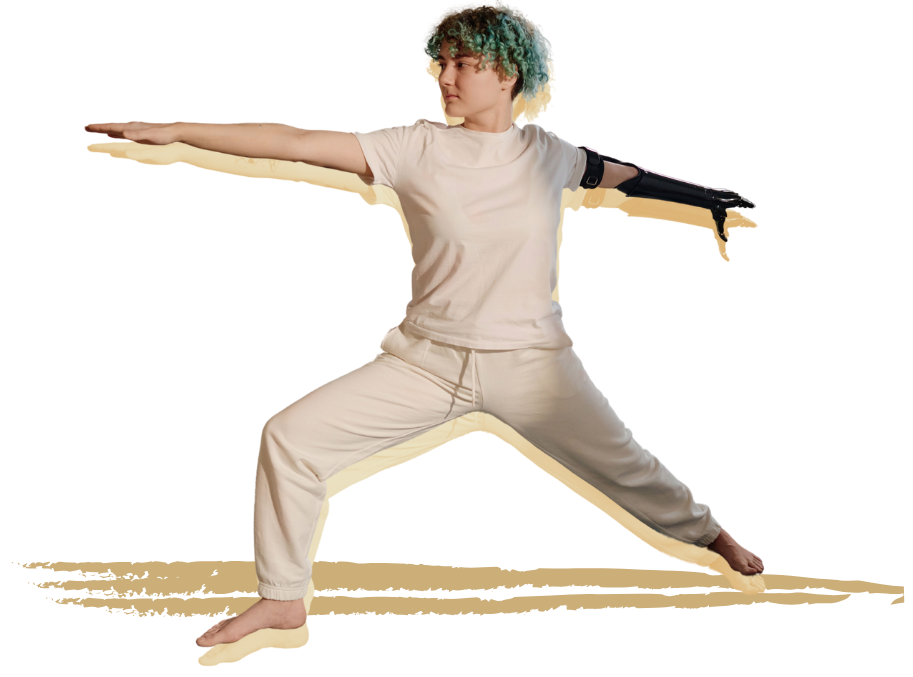
Individual therapy
Family therapy
Group therapy
Psychiatric services
Medication management
Mindfulness
Journaling
Coping skills groups
Yoga
Addictions & use of technology groups
Music therapy
Art assisted therapy
Physical fitness
Life skills groups
Surf therapy
Outings & recreational activities
School & IEP support
Get to Know Build Bright


Our Program
We're changing lives with our creative program, sparking innovation and empowering individuals along the way.

Our Approach

When Should You Consider Residential Treatment?
We help you determine the right time for residential treatment consideration.
Frequently Asked Questions
Are there lifestyle changes that can help stabilize mood and manage symptoms of Bipolar Disorder in teenagers?
What are the risks if Bipolar Disorder is not treated?
How can I support my teenager with Bipolar Disorder at home and at school?
Are medications safe for teens with Bipolar Disorder?
Can Bipolar Disorder in teenagers be cured, or is it a lifelong condition?
How can I tell the difference between Bipolar Disorder and typical adolescent mood swings?
How can I help my teenager adhere to their medication regimen for Bipolar Disorder?
Do you accept health insurance?
Teen Bipolar Disorder Treatment Blog
Teenage years are marked by emotional ups and downs, but what if your teen's mood swings are more than just typical adolescent behavior? Bipolar...
